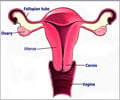Men are 32 per cent more likely to report low sexual desire than a decade ago, suggests new research that detected that change.

‘They found that the number of patients visiting with erectile dysfunction problems increased from 2009 to 2013, then started to decrease.’





"Over a 10 year period we have seen a real change in what concerns men when they attend sexual health clinics," said research leader Paolo Capogrosso of San Raffaele Hospital in Milan, Italy. "This is probably driven by greater openness, and men now accepting that many sexual problems can be treated, rather than being something they don't want to talk about," Capogrosso said while presenting the work at the European Association of Urology (virtual) Congress being held from July 17-19.
The success of erectile dysfunction treatments such as Viagra and Cialis, and the availability of new treatments, means that men facing sexual problems now have treatments for sexual problems which were not available a generation ago.
The new research, published in the International Journal of Impotence Research, looked into why men come to sexual health clinics, and how this has changed over a 10-year period.
For the study, the scientists questioned 3,244 male visitors to the San Raffaele Hospital Sexual Health Clinic in Milan over a 10 year period, and classified the main reason for the visit.
They found that the number of patients visiting with erectile dysfunction problems increased from 2009 to 2013, then started to decrease.
There were comparatively few patients complaining of low sex drive or Peyronie's disease in 2009, but complaints about both of these conditions grew from 2009 to the end of the study.
In 2019, men were around 30 per cent more likely to report Peyronie's disease than in 2009, and around 32 per cent more likely to report low sexual desire.
The number of men complaining of premature ejaculation dropped by around six per cent over the 10-year period.
The average age of first attendance at the clinic also dropped, from a mean of 61 to 53 years.
"We need to be clear about what these figures mean. They do not indicate any change in the prevalence of these conditions, what they show is why men came to the clinic. In other words, it shows what they are concerned about," Capogrosso informed.
While these are results from a single centre, awareness about conditions such as Peyronie's disease is increasing in the US and elsewhere, Capogrosso said.
Source-IANS














